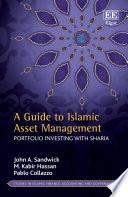Der weltweite Prozess der Globalisierung hält, wie in allen Branchen, auch im Finanzbereich Einzug. Ausländisches Kapital, ausländische Kunden und damit auch andere Kulturen werden für deutsche Banken immer wichtiger. Durch die Einwanderung von ausländischen Arbeitskräften nach dem Zweiten Weltkrieg sind zudem ganz neue Kundensegmente entstanden. Die Kunden haben zum Teil andere Werte und Normen und bedürfen daher anderer Finanzprodukte. Die deutschen Banken haben lange Zeit nicht darauf reagiert und weiterhin kulturell undifferenzierte Produkte angeboten. Ähnlich wurde anfangs in allen Einwanderungsstaaten gehandelt. Doch während manche Banken im Ausland relativ schnell auf diese Möglichkeiten reagierten und teilweise große Erfolge damit erzielten, haben die meisten deutschen Banken diesen Trend zu spät erkannt. Aufgrund ihrer Größe besonders interessant ist in dem Zusammenhang die Kundengruppe der Muslime. Und somit das Islamic Banking. Doch was genau ist Islamic Banking? Diese Frage lässt sich auf zwei Wegen beantworten. Zum einen kann man es definieren als: Islamisches Bankenwesen, dass jede Form von Finanzdienstleistungen, die nach den Regeln des Islam aufgebaut sind, umfasst. Dazu bedarf es der Einhaltung der Verbote des Riba (Zins) der Gharar (Spekulationen) sowie von Maysir und Qimar (Glücksspiel). Außerdem müssen grundsätzliche Regeln eingehalten werden; so dürfen ethisch moralische Grundsätze nie verletzt werden und es muss stets eine Risiko-, Gewinn- und Verlustteilung vorliegen. Besonderes Interesse hat das Islamic Banking während des Beginns der Finanzkrise geweckt. Während konventionelle Banken Milliarden abschreiben mussten, waren islamische Banken zunächst nicht betroffen. Plötzlich erschienen in vielen namenhaften Zeitschriften Artikel über den Erfolg dieser Banken. Doch warum haben islamische Banken der Krise scheinbar getrotzt und wenn sie der Krise trotzen konnten, ist das Islamic Banking dann unanfällig für Krisen oder liegt das Risiko nur an einer anderen Stelle? Vielen Menschen ist inzwischen bekannt, dass islamische Banken keine Zinsen nehmen dürfen. Zinsen sind es aber eben, die die Säule des konventionellen Bankensystems darstellen. Wie also finanzieren sich islamische Banken? Welche Instrumente und Produkte stehen diesen Banken dazu zur Verfügung und gibt es vielleicht weitere wichtige Regeln, die islamischen Banken beachten müssen? Inzwischen sind auch deutsche Banken auf das Islamic Banking aufmerksam geworden und bieten zum Teil erste islamische Produkte an. Hinzu kommt, dass ausländische Banken ebenfalls das vermeintliche Potenzial des deutschen Marktes im Bereich des Islamic Banking erkannt haben wollen. Aber ist ein solches Potenzial überhaupt vorhanden? Lohnen sich Investitionen in Deutschland zum Vertrieb von islamischen Finanzprodukten überhaupt? Über diese Fragen soll dieses Buch Aufschluss geben. Zudem soll ein Überblick über das „Universum“ des Islamic Banking gegeben werden, der zum Verständnis der Arbeitsweise islamischer Banken und islamischer Finanzprodukte gereichen soll.
Accounting and Auditing Organization for Islamic Financial Institutions Bundesanstalt für Finanzdienstleistungsaufsicht bezüglich beziehungsweise das heißt f folgende fortfolgende in der Regel Institute for Islamic Banking and Finance ...










